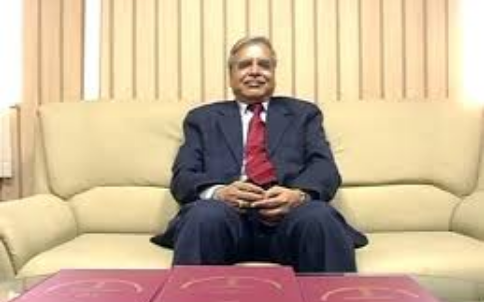Krishna waters-7
In apex body, the Union Minister could act based on his party’s political stand with the CM or the ruling party of the State. For instance, if the NDA government at centre is friendly with Andhra Pradesh, the other state could be pushed to a disadvantageous situation regarding water resources. The Chairpersons of these River Boards will be of the Secretary rank officer of Union Government while Chief Engineers of two states will be the members. An expert member in each board will be appointed by centre while each board will have a member-secretary who normally will be the Chief Engineer cadre officer of the Central Government. It means two Boards constituted with Babus will be dominated by apex body where Central Minister presides and two boards are supposed to act as per instructions of Central Government. This removes all the autonomous powers of two states over the rivers, their boards and apex body. Though there are several provisions explaining functions of these two boards and the supervising ‘powers’ of the apex body, the de facto powers are vested with Union Minister. It appears that there is an elaborate mechanism for dispute resolution but, in fact all the powers are centralized with the central government. This is totally against the state’s rights, autonomy and independence envisaged by the Constitution. Instead of India being Union of States, as mandated by Article 1 of the Constitution, states were made to be ruled by the Union Government. It is anti-federal usurping of states powers by the Centre.
Also read: The Centre Robs Rivers of States
Justice Brijesh rejects
Telangana was asking for reallocation of shares in Krishna river from the extended Tribunal headed Justice Brijesh Kumar. But Justice did not agree with the demand for the reallocation of water shares in Krishna among four riparian states. In October 2016 the Tribunal headed by Justice Brijesh Kumar made certain crucial observations:
- Section 89 of the Reorganisation Act does not lead to any such inference or conclusion for fresh allocation amongst the four riparian States.
- There was not even a mention of Telangana let alone reallocation of water in the section.
- Section 89 did not specify allocations to projects, in general, and mentioned allocations only to projects for which allocation were fixed by the earlier tribunals.
- The allocations made on the basis of water utilisations outside Krishna basin were valid on historic grounds.
- Rayalaseema, which was outside the basin, was therefore entitled for Krishna water.
- The two successor States (Andhra Pradesh and Telangana) could only share what was allocated to the undivided Andhra Pradesh, nothing more or nothing less.
- The claim of Telangana state that erstwhile Andhra Pradesh was divided because of the inequitable and faulty allocation of water is not correct. This reason that was stressed repeatedly by Telangana in its petition to the Supreme Court was not borne out from the statement or Objectives and Reasons and the Salient Features of the Bill.
- The primary reason for the division of the erstwhile state was to “fulfil the political and democratic aspirations of the people of Telangana region,” and not inequitable sharing of water.
Unfortunately, the tribunal, which is hearing the dispute for the last 17 years, has ruled that the water sharing between Andhra Pradesh and Telangana states would be finalised project wise from the water allocations made to erstwhile Andhra Pradesh state by earlier Bachawat tribunal and will not consider the formation of a new state or equity to it. It is a serious injustice that should not be perpetuated under the chairmanship of a former Judge.
Also read: The law for River Water Disputes
Also read: Is it constitutional to take away the Rivers?
Also read: River Management Boards
Also read: The Constitutional Necessity of Separation
Also read: CJI’s worthy solution to Water Dispute




